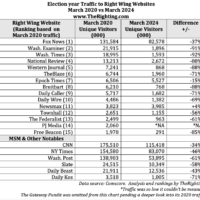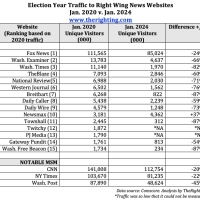
Pride Nights Throw Major League Baseball a Nasty Curve
By Jon Friedman, June 14, 2023
Major League Baseball (MLB) is facing the challenge of showing society that it is in step with the emphasis on diversity and inclusion.
Despite the controversy over the Dodgers’ disinvitation to a drag group followed by a reinvitation, MLB teams have been admirably celebrating Pride Night throughout June in ballparks. Still, the National Pastime is finding that inclusion, while a worthy pursuit, is not always easy to embrace.
Another problem is that the sport is discovering that, good intentions aside, it must show that it can expand its notion of diversity when even some of its players make this goal difficult.
And the sport must also deal with people who will contend that there is a way to discipline players who speak in offensive ways while respecting the concept of free speech. Given the pressures on for-profit organizations nowadays to do the right thing without upsetting non-progressive fans, this task may prove to be easier than a pitcher getting out of a bases-loaded jam with nobody out.
Soul-Searching
MLB’s most recent bout of soul-searching was sparked by two separate incidents.
Matt Dermody, a 32-year-old pitcher, was cut by the Boston Red Sox one day after he said that he regretted presenting a homophobic tweet two years ago.
The Toronto Blue Jays released pitcher Anthony Bass from his contract 24 hours after the right-handed reliever contended that he didn’t think an anti-LGBTQ+ social-media post he issued last month smacked of hatred
Right-wing media was quick to slam the moves. “The Blue Jays cut a Christian pitcher to placate the LGBT lobby,” read a subline on a story in The American Conservative.
It’s important to remember that Major League Baseball is a business. This means that the sport and its franchises, like any company, works hard to maintain an acceptable, or even admirable, image to the public.
The last thing any corporation wants in 2023 is to appear to be bigoted or practice discriminatory behavior. Baseball teams want very much to expand their fan bases to include anyone who has the money shell out gargantuan sums of money to buy tickets, pay for parking spaces and consume nachos, sushi and drink lots of beer at concession stands at the ball parks.
Some might suggest that the Red Sox and Blue Jays – as well as any other collegiate or professional sports team that takes this kind of stance – are merely playing a pastime that is even older than baseball: damage control.
The teams – once again, like any business that serves the public – intend to show that they practice inclusion, even when it means parting ways with players on the rosters.
Sure, a sports franchise’s primary job is to provide entertainment for its customers, both in person and on television radio broadcasts.
It can be argued that baseball has the thorniest job of any sport because its teams play 162 games per season – they take the field virtually every day from April to October. Baseball teams are easily the most conspicuous examples of athletic entertainment.
The Schilling Precedent
In 2016, Major League Baseball chose to drop the hammer on clutch pitcher Curt Schilling. On the field, Schilling was a star, often doing his best work under extreme pressure. He started World Series games for the Philadelphia Phillies, the Arizona Diamondbacks and the Boston Red Sox. Red Sox and New York Yankees fans will long remember the riveting spectacle of Schilling shutting down the Yankees in the 2004 American League Champion Series. The image of Schilling excelling despite a bloody sock was memorable in 21st century baseball annals.
But after a social media post he wrote mocking transgender access to bathrooms, Schilling was fired from his role as an analyst on ESPN. That episode followed previous controversies over his social media posts on transgender and other issues.
In 2023, Major League Baseball is trying hard to show that it is an admirable public citizen at a time when the public expects it to stress inclusion and diversity. If only this could be as easy as putting a bandage on a bloody sock.
Jon Friedman wrote MarketWatch’s Jon Friedman’s Media Web column from 1999 to 2013 and has taught classes in journalism and other subjects at Stony Brook University. He has written three books and has been published in The New York Times Magazine, The Wall Street Journal, The New York Times Sunday Business Section, The New York Post, Esquire and Time.
Interested in more news about right-wing media curated especially for mainstream audiences? Subscribe to our free daily newsletter.
The Toronto Blue Jays released pitcher Anthony Bass (above) from his contract 24 hours after the right-handed reliever contended that he didn’t think an anti-LGBTQ+ social-media post he issued last month smacked of hatred. (Image: Wikimedia Commons)
























